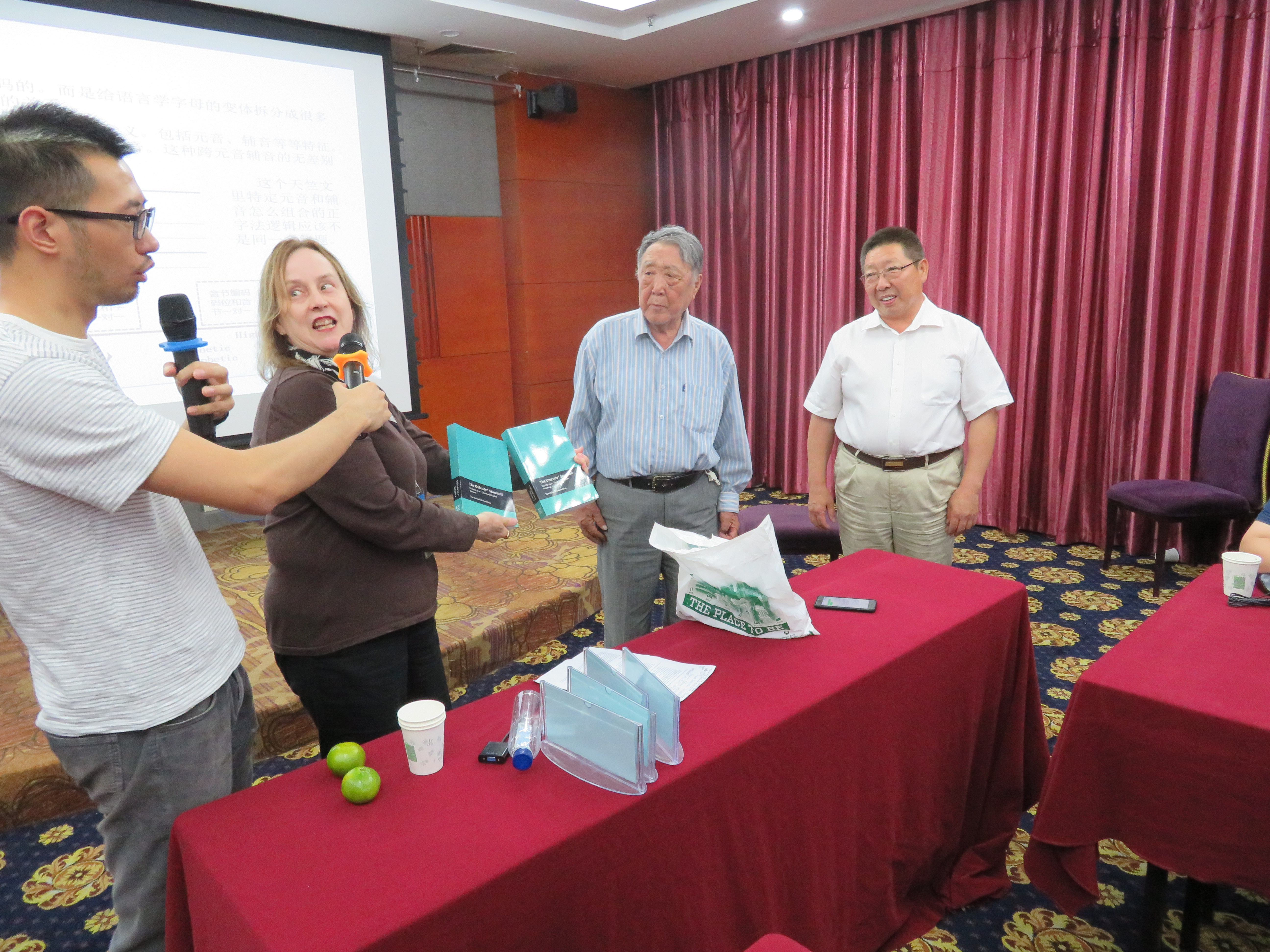|
Cldr
The Common Locale Data Repository Project, often abbreviated as CLDR, is a project of the Unicode Consortium to provide locale data in XML format for use in computer applications. CLDR contains locale-specific information that an operating system will typically provide to applications. Among the types of data that CLDR includes are the following: * Translations for language names * Translations for territory and country names * Translations for currency names, including singular/plural modifications * Translations for weekday, month, era, period of day, in full and abbreviated forms * Translations for time zones and example cities (or similar) for time zones * Translations for calendar fields * Patterns for formatting/parsing dates or times of day * Exemplar sets of characters used for writing the language * Patterns for formatting/parsing numbers * Rules for language-adapted collation * Rules for spelling out numbers as words * Rules for formatting numbers in traditional n ... [...More Info...] [...Related Items...] OR: [Wikipedia] [Google] [Baidu] |
Unicode Consortium
The Unicode Consortium (legally Unicode, Inc.) is a 501(c)(3) non-profit organization incorporated and based in Mountain View, California. Its primary purpose is to maintain and publish the Unicode Standard which was developed with the intention of replacing existing character encoding schemes which are limited in size and scope, and are incompatible with multilingual environments. The consortium describes its overall purpose as: Unicode's success at unifying character sets has led to its widespread adoption in the internationalization and localization of software. The standard has been implemented in many technologies, including XML, the Java programming language, Swift, and modern operating systems. Voting members include computer software and hardware companies with an interest in text-processing standards, including Adobe, Apple, the Bangladesh Computer Council, Emojipedia, Facebook, Google, IBM, Microsoft, the Omani Ministry of Endowments and Religious Affairs, Mono ... [...More Info...] [...Related Items...] OR: [Wikipedia] [Google] [Baidu] |
International Components For Unicode
International Components for Unicode (ICU) is an open-source project of mature C/ C++ and Java libraries for Unicode support, software internationalization, and software globalization. ICU is widely portable to many operating systems and environments. It gives applications the same results on all platforms and between C, C++, and Java software. The ICU project is a technical committee of the Unicode Consortium and sponsored, supported, and used by IBM and many other companies. ICU provides the following services: Unicode text handling, full character properties, and character set conversions; Unicode regular expressions; full Unicode sets; character, word, and line boundaries; language-sensitive collation and searching; normalization, upper and lowercase conversion, and script transliterations; comprehensive locale data and resource bundle architecture via the Common Locale Data Repository (CLDR); multiple calendars and time zones; and rule-based formatting and parsing of d ... [...More Info...] [...Related Items...] OR: [Wikipedia] [Google] [Baidu] |
Unicode
Unicode, formally The Unicode Standard,The formal version reference is is an information technology standard for the consistent encoding, representation, and handling of text expressed in most of the world's writing systems. The standard, which is maintained by the Unicode Consortium, defines as of the current version (15.0) 149,186 characters covering 161 modern and historic scripts, as well as symbols, emoji (including in colors), and non-visual control and formatting codes. Unicode's success at unifying character sets has led to its widespread and predominant use in the internationalization and localization of computer software. The standard has been implemented in many recent technologies, including modern operating systems, XML, and most modern programming languages. The Unicode character repertoire is synchronized with ISO/IEC 10646, each being code-for-code identical with the other. ''The Unicode Standard'', however, includes more than just the base code. Along ... [...More Info...] [...Related Items...] OR: [Wikipedia] [Google] [Baidu] |
Mark Davis (Unicode)
Mark Edward Davis (born September 13, 1952) is an American specialist in the internationalization and localization of software and the co-founder and president of the Unicode Consortium. He is one of the key technical contributors to the Unicode specifications, being the primary author or co-author of bidirectional text algorithms (used worldwide to display Arabic language and Hebrew language text), collation (used by sorting algorithms and search algorithms), Unicode normalization, Unicode scripts, text segmentation, identifiers, regular expressions, data compression, character encoding and security. Education Davis was educated at Stanford University where he was awarded a PhD in Philosophy in 1979. Career and research Davis has specialized in Internationalization and localization of software for many years. After his PhD, he worked in Zurich, Switzerland for several years, then returned to California to join Apple, where he co-authored the Macintosh KanjiTalk ... [...More Info...] [...Related Items...] OR: [Wikipedia] [Google] [Baidu] |
POSIX
The Portable Operating System Interface (POSIX) is a family of standards specified by the IEEE Computer Society for maintaining compatibility between operating systems. POSIX defines both the system- and user-level application programming interfaces (APIs), along with command line shells and utility interfaces, for software compatibility (portability) with variants of Unix and other operating systems. POSIX is also a trademark of the IEEE. POSIX is intended to be used by both application and system developers. Name Originally, the name "POSIX" referred to IEEE Std 1003.1-1988, released in 1988. The family of POSIX standards is formally designated as IEEE 1003 and the ISO/IEC standard number is ISO/ IEC 9945. The standards emerged from a project that began in 1984 building on work from related activity in the ''/usr/group'' association. Richard Stallman suggested the name ''POSIX'' (pronounced as ''pahz-icks,'' as in ''positive'', not as ''poh-six'') to the IEEE instead of for ... [...More Info...] [...Related Items...] OR: [Wikipedia] [Google] [Baidu] |
ISO/IEC 15897
ISO/IEC 15897 (''Procedures for the registration of cultural elements'') is an ISO/ IEC standard for the registration of new POSIX locales and POSIX charmaps. This standard is the result of a "fast-track" adoption of CEN ENV 12005, a European prestandard published by CEN. It was originally published in 1999, and a second edition was published in 2011. The standard was produced by Working Group 20 (WG20) of the JTC 1/SC 22 committee, but in 2006 the standard was transferred to the JTC 1/SC 35 committee. The registry is maintained by Danish UNIX-systems User Group (DKUUG), although it has not been updated since December 2001. The standard was confirmed in 2017, following a five-yearly systematic review. Items registered in the registry are: *Narrative Cultural Specifications *POSIX Locales *POSIX Charmaps *Repertoiremaps It overlaps somewhat with the CLDR project hosted at the Unicode Consortium. References External linksDraft of the standard(free)ISO/IEC 15897in ISO's Onli ... [...More Info...] [...Related Items...] OR: [Wikipedia] [Google] [Baidu] |
IBM AIX
AIX (Advanced Interactive eXecutive, pronounced , "ay-eye-ex") is a series of proprietary Unix operating systems developed and sold by IBM for several of its computer platforms. Background Originally released for the IBM RT PC RISC workstation in 1986, AIX has supported a wide variety of hardware platforms, including the IBM RS/6000 series and later Power and PowerPC-based systems, IBM System i, System/370 mainframes, PS/2 personal computers, and the Apple Network Server. It is currently supported on IBM Power Systems alongside IBM i and Linux. AIX is based on UNIX System V with 4.3BSD-compatible extensions. It is certified to the UNIX 03 and UNIX V7 marks of the Single UNIX Specification, beginning with AIX versions 5.3 and 7.2 TL5 respectively. Older versions were previously certified to the UNIX 95 and UNIX 98 marks. AIX was the first operating system to have a journaling file system, and IBM has continuously enhanced the software with features such as p ... [...More Info...] [...Related Items...] OR: [Wikipedia] [Google] [Baidu] |
MediaWiki
MediaWiki is a free and open-source wiki software. It is used on Wikipedia and almost all other Wikimedia websites, including Wiktionary, Wikimedia Commons and Wikidata; these sites define a large part of the requirement set for MediaWiki. It was developed for use on Wikipedia in 2002, and given the name "MediaWiki" in 2003. MediaWiki was originally developed by Magnus Manske and improved by Lee Daniel Crocker. Magnus Manske's announcement of "PHP Wikipedia", wikipedia-l, August 24, 2001 Its development has since then been coordinated by the Wikimedia Foundation. MediaWiki is written in the PHP programming language and stores all text content into a database. The software is optimized to efficiently handle large projects, which can have terabytes of content and hundreds of thousands of views per second. Because Wikipedia is one of the world's largest websites, achieving scalability through multiple layers of caching and database replication has been a major concern ... [...More Info...] [...Related Items...] OR: [Wikipedia] [Google] [Baidu] |
LibreOffice
LibreOffice () is a free and open-source office productivity software suite, a project of The Document Foundation (TDF). It was forked in 2010 from OpenOffice.org, an open-sourced version of the earlier StarOffice. The LibreOffice suite consists of programs for word processing, creating and editing of spreadsheets, slideshows, diagrams and drawings, working with databases, and composing mathematical formulae. It is available in 115 languages. TDF doesn't provide support for LibreOffice, but enterprised-focused editions are available from companies in the ecosystem. LibreOffice uses the OpenDocument standard as its native file format, but supports formats of most other major office suites, including Microsoft Office, through a variety of import and export filters. LibreOffice is available for a variety of computing platforms, with official support for Microsoft Windows, macOS and Linux and community builds for many other platforms. LibreOffice is the default office suite of ... [...More Info...] [...Related Items...] OR: [Wikipedia] [Google] [Baidu] |
MacOS
macOS (; previously OS X and originally Mac OS X) is a Unix operating system developed and marketed by Apple Inc. since 2001. It is the primary operating system for Apple's Mac computers. Within the market of desktop and laptop computers it is the second most widely used desktop OS, after Microsoft Windows and ahead of ChromeOS. macOS succeeded the classic Mac OS, a Mac operating system with nine releases from 1984 to 1999. During this time, Apple cofounder Steve Jobs had left Apple and started another company, NeXT, developing the NeXTSTEP platform that would later be acquired by Apple to form the basis of macOS. The first desktop version, Mac OS X 10.0, was released in March 2001, with its first update, 10.1, arriving later that year. All releases from Mac OS X 10.5 Leopard and after are UNIX 03 certified, with an exception for OS X 10.7 Lion. Apple's other operating systems (iOS, iPadOS, watchOS, tvOS, audioOS) are derivatives of macOS. A promi ... [...More Info...] [...Related Items...] OR: [Wikipedia] [Google] [Baidu] |
Apple Inc
Apple Inc. is an American multinational technology company headquartered in Cupertino, California, United States. Apple is the largest technology company by revenue (totaling in 2021) and, as of June 2022, is the world's biggest company by market capitalization, the fourth-largest personal computer vendor by unit sales and second-largest mobile phone manufacturer. It is one of the Big Five American information technology companies, alongside Alphabet, Amazon, Meta, and Microsoft. Apple was founded as Apple Computer Company on April 1, 1976, by Steve Wozniak, Steve Jobs and Ronald Wayne to develop and sell Wozniak's Apple I personal computer. It was incorporated by Jobs and Wozniak as Apple Computer, Inc. in 1977 and the company's next computer, the Apple II, became a best seller and one of the first mass-produced microcomputers. Apple went public in 1980 to instant financial success. The company developed computers featuring innovative graphical user inter ... [...More Info...] [...Related Items...] OR: [Wikipedia] [Google] [Baidu] |




